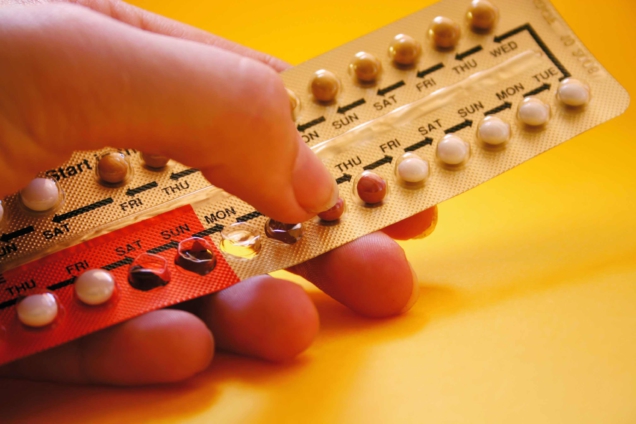A medical practitioner says women are more likely to suffer from stroke because of the prolonged consumption of oral contraceptives.
According to Dr Collins Abaitey Muzu, these oral medications when used for a long may result in clotting in the vessels which transport blood from the heart to the brain.
"The reason why women are said to have a higher risk of having stroke more than men is because of the use of oral contraceptives and pills."
"They’ve been found to increase the incidence of stroke because these medications increase the chances of clot formation in the blood vessels,” he said.

Speaking on Joy Prime’s Prime Morning, he explained that these clots block the free flow of nutrient-carrying blood to the brain causing the cells within that deprived part of the brain to die and hence stop functioning.
“There’s a type where there’s a clot that is blocking the flow of blood to the brain, there’s a clot that is sitting in the artery that goes to the brain or within the brain.”
“When that happens, because the artery is blocked and blood cannot flow beyond the clot, that part of the brain that is supplied blood by that particular artery will die off and lose its function, the cells within that brain will die because there’s no blood going in.”
“The brain has so many parts, and every part of the brain has a function that it performs, so if an artery that is going to the part that controls maybe my arm is impaired and then there’s no blood going to that part, that part of the brain loses oxygen and dies off and cannot perform its function.”
“That’s when you see that people have stroke and they can’t move their hand or their legs or they can’t talk because the part that controls that function is lost because there’s no blood or oxygen,” he explained.
Dr. Muzu also added that older or post-menopausal women who take hormone replacement therapies for a long time are at a higher risk of getting stroke due to clotting in the blood vessel which prevents blood from going into the brain.
This medication contains female hormones which tends to replace the estrogen that the body stops making during menopause.
Latest Stories
-
Ghana-Russia Centre to run Russian language courses in Ghana
5 hours -
The Hidden Costs of Hunger: How food insecurity undermines mental and physical health in the U.S.
5 hours -
18plus4NDC marks 3rd anniversary with victory celebration in Accra
8 hours -
CREMA workshop highlights collaborative efforts to sustain Akata Lagoon
8 hours -
2024/25 Ghana League: Heart of Lions remain top with win over Basake Holy Stars
9 hours -
Black Queens: Nora Hauptle shares cryptic WAFCON preparation message amid future uncertainty
9 hours -
Re-declaration of parliamentary results affront to our democracy – Joyce Bawah
10 hours -
GPL 2024/25: Vision FC score late to deny Young Apostles third home win
10 hours -
Enhancing community initiatives for coastal resilience: Insights from Keta Lagoon Complex Ramsar Site Workshop
10 hours -
Family Health University College earns a Presidential Charter
10 hours -
GPL 2024/25: Bibiani GoldStars beat Nsoatreman to keep title race alive
10 hours -
GPL 2024/25 Bechem United keep title hopes alive with narrow win over FC Samartex
10 hours -
2024/25: Dauda Saaka scores as Asante Kotoko beat Dreams FC
10 hours -
M.anifest reflects on galamsey’s devastation 11 years after ‘No Shortcut to Heaven’
11 hours -
We’ll have the last laugh – Sammy Gyamfi slams EC’s “cantata” re-collation
11 hours

